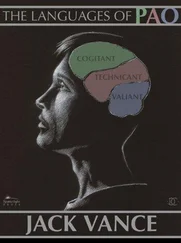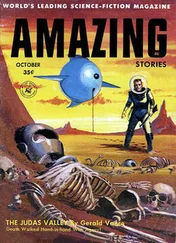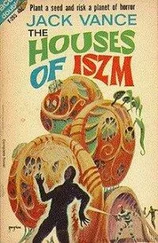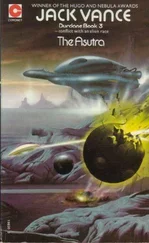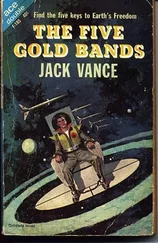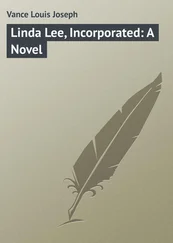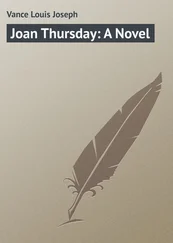Louis Vance - The Destroying Angel
Здесь есть возможность читать онлайн «Louis Vance - The Destroying Angel» — ознакомительный отрывок электронной книги совершенно бесплатно, а после прочтения отрывка купить полную версию. В некоторых случаях можно слушать аудио, скачать через торрент в формате fb2 и присутствует краткое содержание. Жанр: foreign_prose, Зарубежные любовные романы, на английском языке. Описание произведения, (предисловие) а так же отзывы посетителей доступны на портале библиотеки ЛибКат.
- Название:The Destroying Angel
- Автор:
- Жанр:
- Год:неизвестен
- ISBN:нет данных
- Рейтинг книги:4 / 5. Голосов: 1
-
Избранное:Добавить в избранное
- Отзывы:
-
Ваша оценка:
- 80
- 1
- 2
- 3
- 4
- 5
The Destroying Angel: краткое содержание, описание и аннотация
Предлагаем к чтению аннотацию, описание, краткое содержание или предисловие (зависит от того, что написал сам автор книги «The Destroying Angel»). Если вы не нашли необходимую информацию о книге — напишите в комментариях, мы постараемся отыскать её.
The Destroying Angel — читать онлайн ознакомительный отрывок
Ниже представлен текст книги, разбитый по страницам. Система сохранения места последней прочитанной страницы, позволяет с удобством читать онлайн бесплатно книгу «The Destroying Angel», без необходимости каждый раз заново искать на чём Вы остановились. Поставьте закладку, и сможете в любой момент перейти на страницу, на которой закончили чтение.
Интервал:
Закладка:
Nothing, indeed, seemed as he remembered it except the offerings in the theatres. He sat through plays on three successive nights that sent him back to his hotel saddened by the conviction that the tastes of his fellow-countrymen in the matter of amusements were as enduring as adamant – as long-enduring. Some day (he prophesied) New York would be finished and complete; then would come the final change – its name – because it wouldn't be New York unless ever changing; and when that was settled, the city would know ease and, for want of something less material to occupy it, begin to develop a soul of its own – together with an inclination for something different in the way of theatrical entertainment.
But his ultimate and utter awakening to the truth that his home had outgrown him fell upon the fourth afternoon following his return, when a total but most affable gentleman presented himself to Whitaker's consideration with a bogus name and a genuine offer to purchase him a drink, and promptly attempted to enmesh him in a confidence game that had degenerated into a vaudeville joke in the days when both of them had worn knickerbockers. Gently but firmly entrusting the stranger to the care of a convenient policeman, Whitaker privately admitted that he was outclassed, that it was time for him to seek the protection of his friends.
He began with Drummond. The latter, of course, had moved his offices; no doubt he had moved them several times; however that may be, Whitaker had left him in quiet and contracted quarters in Pine Street; he found him independently established in an imposing suite in the Woolworth Building.
Whitaker gave one of Mr. Hugh Morten's cards to a subdued office-boy. "Tell him," he requested, "that I want to see him about a matter relating to the estate of Mr. Whitaker."
The boy dived through one partition-door and reappeared by way of another with the deft certainty of a trained pantomime.
"Says t' come in."
Whitaker found himself in the presence of an ashen-faced man of thirty-five, who clutched the side of his roll-top desk as if to save himself from falling.
"Whitaker!" he gasped. "My God!"
"Flattered," said Whitaker, "I'm sure."
He derived considerable mischievous amusement from Drummond's patent stupefaction. It was all so right and proper – as it should have been. He considered his an highly satisfactory resurrection, the sensation it created as complete, considered in the relation of anticipation to fulfilment, as anything he had ever experienced. Seldom does a scene pass off as one plans it; the other parties thereto are apt to spoil things by spouting spontaneously their own original lines, thus cheating one out of a crushing retort or cherished epigram. But Drummond played up his part in a most public-spirited fashion – gratifying, to say the least.
It took him some minutes to recover, Whitaker standing by and beaming.
He remarked changes, changes as striking as the improvement in Drummond's fortunes. Physically his ex-partner had gone off a bit; the sedentary life led by the average successful man of business in New York had marked his person unmistakably. Much heavier than the man Whitaker remembered, he wore a thick and solid air of good-natured prosperity. The hair had receded an inch or so from his forehead. Only his face seemed as it had always been – sharply handsome and strong. Whitaker remembered that he had always somewhat meanly envied Drummond his good looks; he himself had been fashioned after the new order of architecture – with a steel frame; but for some reason Nature, the master builder, had neglected sufficiently to wall in and conceal the skeleton. Admitting the economy of the method, Whitaker was inclined to believe that the effect must be surprising, especially if encountered without warning…
He discovered that they were both talking at once – furiously – and, not without surprise, that he had a great deal more enlightenment to impart to Drummond than he had foreseen.
"You've got an economical streak in you when it comes to correspondence," Drummond commented, offering Whitaker a sheet of paper he had just taken from a tin document-box. "That's Exhibit A."
Whitaker read aloud:
"'Dear D., I'm not feeling well, so off for a vacation. Burke has just been in and paid $1500 in settlement of our claim. I'm enclosing herewith my check for your share. Yours, H. M. W.'"
"Far be it from me to cast up," said Drummond; "but I'd like to know why the deuce you couldn't let a fellow know how ill you were."
Whitaker frowned over his dereliction. "Don't remember," he confessed. "I was hardly right, you know – and I presume I must have counted on Greyerson telling."
"But I don't know Greyerson…"
"That's so. And you never heard – ?"
"Merely a rumour ran round. Some one – I forget who – told me that you and Stark had gone sailing in Stark's boat – to cruise in the West Indies, according to my informant. And somebody else mentioned that he'd heard you were seriously ill. More than that nothing – until we heard that the Adventuress had been lost, half a year later."
"I'm sorry," said Whitaker contritely. "It was thoughtless…"
"But that isn't all," Drummond objected, flourishing another paper. "See here – Exhibit B – came in a day or so later."
"Yes." Whitaker recognized the document. "I remember insisting on writing to you before we turned in that night."
He ran through the following communication:
"Dear Drummond: I married here, to-night, Mary Ladislas. Please look out for her while I'm away. Make her an allowance out of my money – five hundred a month ought to be enough. I shall die intestate, and she'll get everything then, of course. She has your address and will communicate with you as soon as she gets settled down in Town.
"Faithfully —
"Hugh Morten Whitaker."
"If it hadn't been so much in character," commented Drummond, "I'd've thought the thing a forgery – or a poor joke. Knowing you as well as I did, however … I just sat back to wait for word from Mrs. Whitaker."
"And you never heard, except that once!" said Whitaker thoughtfully.
"Here's the sole and only evidence I ever got to prove that you had told the truth."
Drummond handed Whitaker a single, folded sheet of note-paper stamped with the name of the Waldorf-Astoria.
"Carter S. Drummond, Esq., 27 Pine Street, City.
"Dear Sir: I inclose herewith a bank-note for $500, which you will be kind enough to credit to the estate of your late partner and my late husband, Mr. Hugh Morten Whitaker.
"Very truly yours,
"Mary Ladislas Whitaker."
"Dated, you see, the day after the report of your death was published here."
"But why?" demanded Whitaker, dumfounded. " Why? "
"I infer she felt herself somehow honour-bound by the monetary obligation," said the lawyer. "In her understanding your marriage of convenience was nothing more – a one-sided bargain, I think you said she called it. She couldn't consider herself wholly free, even though you were dead, until she had repaid this loan which you, a stranger, had practically forced upon her – if not to you, to your estate."
"But death cancels everything – "
"Not," Drummond reminded him with a slow smile, "the obligation of a period of decent mourning that devolves upon a widow. Mrs. Whitaker may have desired to marry again immediately. If I'm any judge of human nature, she argued that repayment of the loan wiped out every obligation. Feminine logic, perhaps, but – "
"Good Lord!" Whitaker breathed, appalled in the face of this contingency which had seemed so remote and immaterial when he was merely Hugh Morten, bachelor-nomad, to all who knew him on the far side of the world.
Drummond dropped his head upon his hand and regarded his friend with inquisitive eyes.
Читать дальшеИнтервал:
Закладка:
Похожие книги на «The Destroying Angel»
Представляем Вашему вниманию похожие книги на «The Destroying Angel» списком для выбора. Мы отобрали схожую по названию и смыслу литературу в надежде предоставить читателям больше вариантов отыскать новые, интересные, ещё непрочитанные произведения.
Обсуждение, отзывы о книге «The Destroying Angel» и просто собственные мнения читателей. Оставьте ваши комментарии, напишите, что Вы думаете о произведении, его смысле или главных героях. Укажите что конкретно понравилось, а что нет, и почему Вы так считаете.


